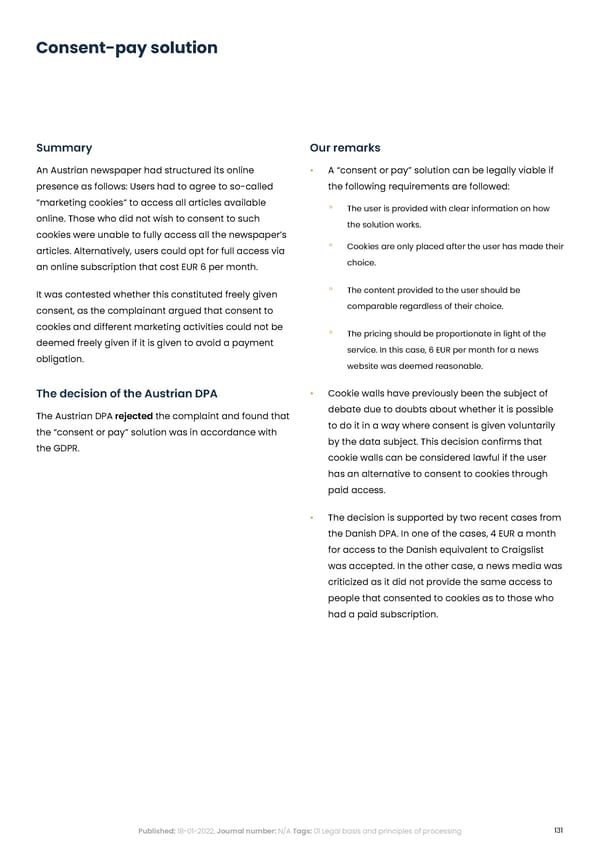Consent-pay solution Summary Our remarks An Austrian newspaper had structured its online • A “consent or pay” solution can be legally viable if presence as follows: Users had to agree to so-called the following requirements are followed: ”marketing cookies” to access all articles available ° The user is provided with clear information on how online. Those who did not wish to consent to such the solution works. cookies were unable to fully access all the newspaper’s articles. Alternatively, users could opt for full access via ° Cookies are only placed after the user has made their an online subscription that cost EUR 6 per month. choice. It was contested whether this constituted freely given ° The content provided to the user should be consent, as the complainant argued that consent to comparable regardless of their choice. cookies and different marketing activities could not be ° The pricing should be proportionate in light of the deemed freely given if it is given to avoid a payment service. In this case, 6 EUR per month for a news obligation. website was deemed reasonable. The decision of the Austrian DPA • Cookie walls have previously been the subject of The Austrian DPA rejected the complaint and found that debate due to doubts about whether it is possible the “consent or pay” solution was in accordance with to do it in a way where consent is given voluntarily the GDPR. by the data subject. This decision confirms that cookie walls can be considered lawful if the user has an alternative to consent to cookies through paid access. • The decision is supported by two recent cases from the Danish DPA. In one of the cases, 4 EUR a month for access to the Danish equivalent to Craigslist was accepted. In the other case, a news media was criticized as it did not provide the same access to people that consented to cookies as to those who had a paid subscription. Published: 18-01-2022, Journal number: N/A Tags: 01 Legal basis and principles of processing 131
 Complycloud EU GDPR Report Page 130 Page 132
Complycloud EU GDPR Report Page 130 Page 132